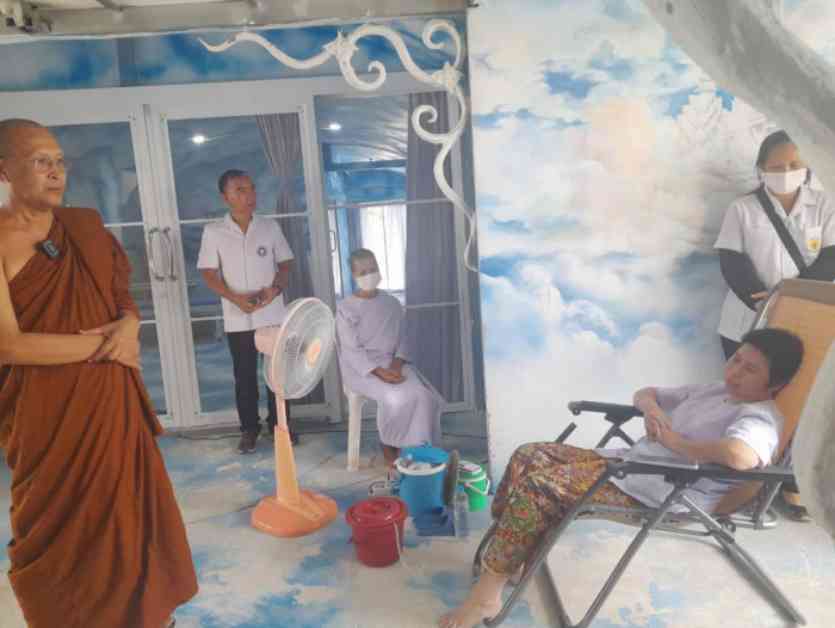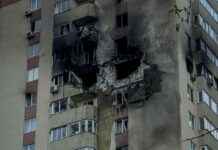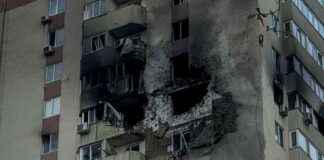Buddhist Temple Support for Terminally Ill Patients
In the serene surroundings of Wat Pa Noen Sa-Ard, a Buddhist temple located in Nakhon Ratchasima’s Chok Chai district, a unique form of care is being offered to terminally ill patients. Monks at this temple provide comfort and spiritual guidance to individuals in the final stages of their lives, helping them find peace and solace as they prepare to pass on.
The Importance of Palliative Care
At Wat Pa Noen Sa-Ard, terminally ill patients who do not require aggressive medical treatment find a safe haven where they can receive palliative care. This form of care focuses on improving the quality of life of patients and alleviating their physical and emotional suffering. The World Health Organization (WHO) recognizes the importance of palliative care in supporting patients with life-limiting illnesses.
Under the compassionate guidance of Phra Ajarn Sanprach Panyakamo, the abbot of Wat Pa Noen Sa-Ard, patients are provided with not only physical care but also spiritual nourishment. The abbot emphasizes the concept of a “good death,” which involves mindfulness and acceptance of one’s circumstances. Through Buddhist teachings, patients are encouraged to approach the end of their lives with courage and peace.
The Role of Mindfulness in End-of-Life Care
Mindfulness plays a central role in the care provided at Wat Pa Noen Sa-Ard. According to Buddhist principles, being mindful, restrained, and persevering can help individuals cope with pain and suffering. By cultivating mindfulness, patients are able to find a sense of calm and acceptance as they approach the end of their lives.
Phra Ajarn Sanprach highlights the importance of taking one’s last breath with mindfulness, allowing individuals to depart from this world in a state of peace. This approach contrasts with traditional medical interventions, as it focuses on the holistic well-being of patients, addressing their physical, mental, social, and spiritual needs.
Challenges and Support for Buddhist Hospice Care
Despite the valuable services provided by Wat Pa Noen Sa-Ard, the temple faces financial challenges in sustaining its operations. While the Department of Health has certified the temple as a public healthcare facility offering palliative care, it does not receive financial support from the state. This lack of funding poses a significant obstacle to the temple’s ability to continue providing care to terminally ill patients.
Phra Ajarn Sanprach urges the National Health Security Office (NHSO) to reconsider its criteria for financial assistance, recognizing the unique and essential role that Buddhist hospice care plays in supporting patients at the end of their lives. With a fixed management cost of 500,000 baht per month, the temple relies on donations to cover its operational expenses.
Despite these challenges, Wat Pa Noen Sa-Ard has made a significant impact on the local healthcare system. By taking in abandoned and neglected patients, the temple has relieved the burden on hospitals like Chok Chai Hospital in Chok Chai district. Dr. Kriengsak Kruthakool, the hospital’s director, acknowledges the valuable contribution of the temple in providing care to vulnerable patients who would otherwise have been left unattended.
In conclusion, the compassionate care provided by Wat Pa Noen Sa-Ard serves as a model for how spiritual and holistic approaches can complement traditional medical interventions in supporting terminally ill patients. By incorporating mindfulness, Buddhist teachings, and palliative care principles, the temple offers a unique and invaluable service to individuals in their final days. As the demand for palliative care continues to grow, initiatives like Wat Pa Noen Sa-Ard play a crucial role in ensuring that all individuals receive compassionate and dignified end-of-life care.




















